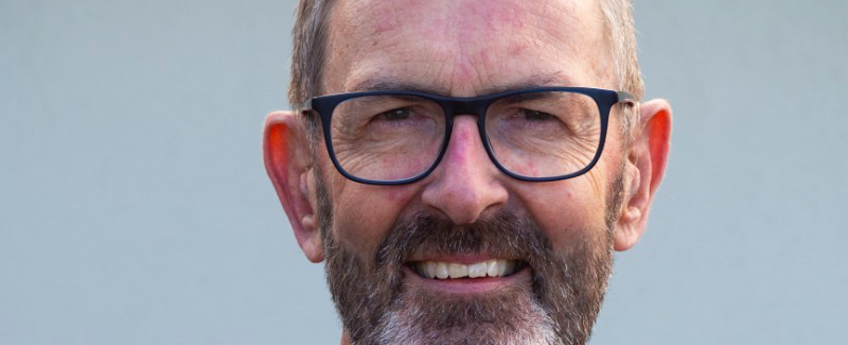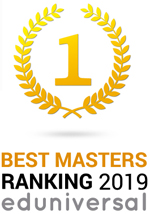Ethical Competencies for Public Leadership
For the last 17 years, I have worked in senior policy advice roles in central and local government. The hardest challenges I have faced in public life have not concerned technical problems of policy analysis. They have all involved working with people who want and value different things.

November, 09 2020 | David Bromell
Defining the Problem
The problem of pluralism is as old as politics itself. Wherever there is diversity in proximity, conflict is inevitable. Politics is how, in a liberal democracy, we manage conflict without recourse to violence or the threat of violence.
Because of global trade, travel, migration and mass communications, pluralism is “in our face”, particularly in settler (immigrant-receiving) societies like New Zealand, as diversity gives way to super-diversity. In super-diverse societies, we increasingly have to do with differences and crossings-over within groups, not only between groups (Vertovec, 2007; Max Planck Institute, 2019). Super-diversity signals diversification of diversity.
I am looking for ways to work with pluralism that deepen the practice of democracy, keep ethics at the center of public life and correct for the managerialism that has accompanied New Public Management / New Public Governance in jurisdictions like Australia, Britain, Canada and New Zealand (Klikauer, 2015; O’Reilly and Reed, 2010; Rhodes, 2016).
There is a great deal to be said for pragmatic accommodation, but unless our pragmatism is principled, we risk concentrating power in a political elite. Keeping ethics at the center of public life requires us to think and deliberate together about the principles that frame how we might live together, in all our diverse diversities, in ways that minimize domination, humiliation, cruelty and violence.
So the question that drives my thinking about ethical competencies for public leadership (Bromell, 2019) is: What are the competencies, or leadership practices, we need to cultivate to work well (both effectively and ethically) in public life with people who want and value different things?
Civility, Diplomacy
The more I understand the breadth and depth of our differences, the more wary (and weary) I become of attempts to drive consensus where it does not exist, or to trump debate by asserting rights claims against each other.
First, I aim for civility rather than consensus. My thought on this has been shaped by the likes of Judith Shklar’s “liberalism of fear” (Shklar, 1989), echoed in Jacob Levy’s “multiculturalism of fear” (Levy, 2000); Iris Young’s “agonistic politics” with its “togetherness of strangers” (Young, 2000); and Chantal Mouffe’s urging of “agonism without antagonism” (Mouffe, 2005, 2009, 2013).
Public leadership demands strong interpersonal skills, if we are to engage in a pluralist, democratic and political politics that takes conflict seriously. It requires us to tone down our anger (Nussbaum, 2016) and develop the competency of civility (Waldron, 2018; Winston, 2003)—the art of disagreeing agreeably.
Secondly, we need to learn the art of diplomacy in our domestic politics as well as our international relations. Effective diplomacy strikes a balance between, on the one hand, principled advocacy and international good citizenship and, on the other hand, pragmatic negotiation to secure what, on balance, will best secure our national interests now and in the future. Our domestic politics similarly requires skills in stakeholder analysis and engagement, and in negotiation and conflict resolution with a view to the long-term public interest.
Stars to Steer By
In a political context where people want and value different things, which principles or values might guide and constrain pragmatic public administration and “muddling through” (Lindblom, 1959, 1979; Bromell, 2017)?
There are multiple relevant ethical values. I do not think we can sensibly reduce them to a single overriding objective like utility, happiness or New Zealand’s word of the moment, “wellbeing” (NZ Government, 2019). My critical reflection on political theory and public administration has led me to focus on four political values: freedom, equality, fairness and community.
I picture these as the four main stars of the Southern Cross constellation. Then I add the Pointers—civility as the art of disagreeing agreeably, and diplomacy in the skilled negotiation of interests. Of course, there are many other values, virtues and competencies worth cultivating if we want to live well and lead good lives (Peterson and Seligman, 2004). But I find I can only hold so many ideas in my head at once and practically, these six provide me with sufficient stars to steer by in public life.
Navigating Between the Stars
In the southern night sky, there is no pole star that indicates due south in the same way Polaris indicates the North Celestial Pole. Early navigators used the long axis of the Southern Cross and the Pointers to extend imaginary lines that intersect at a point known as the South Celestial Pole. They then dropped a vertical line to the horizon to locate due south (Wassilieff, 2006).
By analogy, I suggest that we set a course and find safe passage in politics and public policy not by following a single star (or principle, or value) but by navigating between the stars. Freedom happens to be the first and brightest of the stars I steer by, but it is not the only star I steer by. Navigating politics and public policy by the bright star of freedom needs to be corrected by reference to equality, fairness and community, with civility and diplomacy.
Six Ethical Competencies
For each value, I identify a related competency or set of mutually reinforcing leadership practices. I frame these as personal resolutions: When exercising leadership in public life, I will be … civil, diplomatic, respectful (of my own and others’ freedom), impartial (in recognition of our basic human equality), fair (in both process and outcomes), and prudent (governing for the long term in ways that maintain creative tension between individuals, communities and the state).
Practically, how do we develop ethical competencies for public leadership? Not by simply reading about them, or acquiring a job title, or signing a code of conduct or merely subscribing to professional standards and codes of ethics.
Ethical leadership is something we exercise—building ethical muscle through the practiced habit of behaving wisely and well. We cannot improve in the doing without also being and becoming. Good character underpins right action, and we cannot be confident of doing the right thing unless we take time to reflect deeply on the right thing to do.
Personally, I thrive when I work in an agency governed and managed by good people who set the tone at the top—so choose your employer, and your boss, wisely. I have learned to be and behave better by watching and listening to people who inspire me by their integrity, within an organization that embeds ethical leadership as “the way we do things here”. And I invest time and energy in mentoring programs where we can explore who we are, how we are with others, who we want to become and how we want to behave, in order to enhance our professional performance and progress our career goals.
Exercising leadership in public life is no walk in the park. It is hard work. It has challenged me to keep growing up, personally as well as professionally. Now I am almost at the end of my full-time working life, but I am still a work in progress. The people I work with know I do not exemplify the six competencies consistently in all respects. They are my stretch goals and a good day at work is when I have dealt with people, no matter how difficult, by the light of the stars I steer by.
David Bromell is a Principal Advisor at the Canterbury Regional Council in Christchurch, New Zealand. He is a Senior Associate of the Institute for Governance and Policy Studies at Victoria University of Wellington, and an Adjunct Senior Fellow in Political Science and International Relations at the University of Canterbury. david.bromell@vuw.ac.nz
References
Bromell, D. (2017). The art and craft of policy advising: A practical guide. Cham, CH: Springer.
Bromell, D. (2019). Ethical competencies for public leadership: Pluralist democratic politics in practice. Cham, CH: Springer.
Klikauer, T. (2015). What is managerialism? Critical Sociology, 41(7–8), 1103–1119. https://doi.org/10.1177/0896920513501351
Levy, J. (2000). The multiculturalism of fear. Oxford: Oxford University Press.
Lindblom, C. (1959). The science of ‘muddling through’. Public Administration Review, 19(2), 79–88. https://doi.org/10.2307/973677
Lindblom, C. (1979). Still muddling, not yet through. Public Administration Review, 39(6), 517–526. https://doi.org/10.2307/976178
Max Planck Institute. (2019). Superdiversity. Accessed May 9, 2020, from http://www.superdiv.mmg.mpg.de
Mouffe, C. (2005). The democratic paradox. London: Verso.
Mouffe, C. (2009). Democracy in a multipolar world. Millennium: Journal of International Studies, 37(3), 549–561. https://doi.org/10.1177/0305829809103232
Mouffe, C. (2013). Agonistics: Thinking the world politically. London: Verso.
Nussbaum, M. (2016). Anger and forgiveness: Resentment, generosity, justice. New York: Oxford University Press.
NZ Government. (2019). The Wellbeing Budget. Accessed May 9, 2020, from https://www.budget.govt.nz/budget/2019/wellbeing/approach/index.htm
O’Reilly, D., & Reed, M. (2010). “Leaderism”: An evolution of managerialism in UK public service reform. Public Administration, 88(4), 960–978. https://doi.org/10.1111/j.1467-9299.2010.01864.x
Rhodes, R. (2016). Recovering the craft of public administration. Public Administration Review, 76(4), 638–647. https://doi.org/10.1111/puar.12504
Shklar, J. (1989). The liberalism of fear. In N. Rosenblum (Ed.), Liberalism and the moral life (pp. 21–38). Cambridge, MA: Harvard University Press.
Vertovec, S. (2007). Super-diversity and its implications. Ethnic and Racial Studies, 30(6), 1024–1054. https://doi.org/10.1080/01419870701599465
Waldron, J. (2018). Polls apart: Reclaiming respect in a time of polarised politics. Sir John Graham Lecture 2017. Auckland, NZ: Maxim Institute. Accessed May 9, 2020, from https://www.maxim.org.nz/sjgl2017/
Wassilieff, M. (2006). Southern cross. Te Ara: The encyclopedia of New Zealand. Accessed May 9, 2020, from https://teara.govt.nz/en/southern-cross
Young, I. (2000). Inclusion and democracy. Oxford: Oxford University Press.






















It is mandatory to be registered to comment
Click here to access.
Click here to register and receive our newsletter.